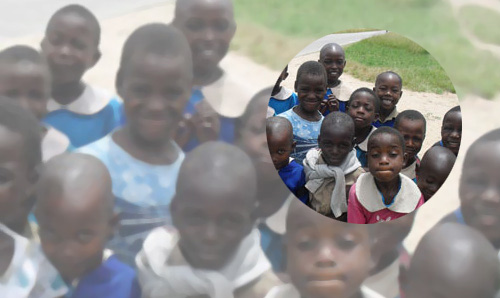Capacity development and policy influence in Zimbabwe
Generating knowledge on poverty and well-being in Zimbabwe to enhance evidence-based policy-making.
The challenge

Following a nearly a decade of socio-economic and political crisis that began in 1997, Zimbabwe’s economy stagnated and went into decline:
- By December 2008 GDP per capita had fallen by 40%
- Capacity utilisation in industry was down to 10% and four out of every five households lived below the breadline
- Agricultural productivity and production had declined and a majority of citizens survived on food aid
- Nearly three million mostly able bodied and highly skilled workers had emigrated and a huge skills gap had emerged
The political settlement that ushered in an inclusive government in February 2009 halted the decline but the major challenge was how to rebuild the economy and society in a context where the massive brain drain had depleted local capacity for good quality research as the basis for evidence-based policy making.
A key challenge was ensuring that the people who make policies were exposed to some of the latest ideas on tackling poverty and enhancing well being.
The impact
Dr Admos Chimhowu of GDI has collaborated with the University of Zimbabwe since 2009 to generate knowledge on poverty and well-being in Zimbabwe.
This partnership and programme of research that he has led has:
- Mounted two major conferences on ‘Reconstructing Zimbabwe’ in Harare (August 2009 and December 2010) each attended by more than 100 researchers, policymakers and NGO staff. These were the only major public, academic-policy events in the country.
- Formed the I-14 group of 14 Zimbabwean researchers working together to produce independent research findings on the country.
- Impacted on policy and budget allocations (the 2010 budget used the Chimhowu Report to justify major parts of its poverty reduction and welfare spending).
- Won a $500,000 grant from the International Development Research Centre (IDRC) in Canada to launch field research, seminar programmes and a think-tank feasibility study in the University of Zimbabwe.
- Produced the first post-crisis report on poverty and well being providing evidence of causes of poverty and suggesting pathways out of poverty.
- Launched a policy dialogue seminar series to expose policy makers to the cutting edge ideas on tackling poverty and enhancing wellbeing.
- Secured funding to enable an academic from Zimbabwe to study for a PhD Rural Livelihood Resilience in Zimbabwe.
At the end of 2012, GDI organised three events attended by the then Minster of Finance Hon. Tendai Biti. These were a Research Master Class on Political Transition in Africa, a roundtable discussion that sought to analyse the inclusive government and a public lecture focusing on the development legacy of coalition governments in Africa.
The aim was to review the progress made during the tenure of the inclusive government in Zimbabwe. Collaboration with the University of Zimbabwe continues and work is currently going on to secure funding to carry out a further round of poverty surveys in 2015, and also research looking at Rural Enterprise and Poverty Exits.
Our research
To aid reconstruction efforts after the crisis, GDI has collaborated with the University of Zimbabwe’s Institute of Environmental Studies and policymakers in the Ministry of Finance, and Economic Planning and Development to build the capacity for evidence-based policy-making.
This collaboration has generated two major research reports:
Moving Forward in Zimbabwe: Reducing Poverty and Promoting Growth (2010)
Understanding Poverty, Promoting Well-being and Sustainable Development (2013)
The first report provided an analysis of the dimensions of the crisis and gave suggestions on how to begin rebuilding public institutions.
The most recent report, based on the first post-crisis survey on poverty and well- being in Zimbabwe, was produced in collaboration with ZIMSTAT, providing an analysis of the poverty profile of households in Zimbabwe.
It also explores scenarios for pathways out of poverty and provides ideas for enhancing well-being.
Key people
- Dr Admos Chimhowu (The University of Manchester)
- Professor David Hulme (The University of Manchester)
- Professor Armando Barrientos (The University of Manchester)
Further information
Listen to the then Minister of Finance Tendai Biti talk to BBC World Service about financially compensation of white farmers, an idea put forward by GDI’s research team:
